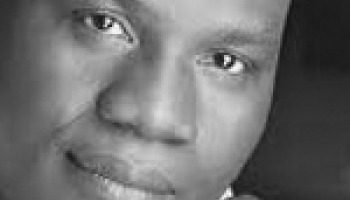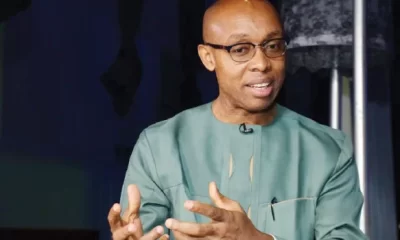Democracy & Governance
Nigeria and the Question of Human Freedom -By Kayode Komolafe

For to be free is not merely to cast off one’s chains, but to live in a way that respects and enhances the freedom of others. – Nelson Mandela
First, for our compatriots in power today, a reminder of the obvious may be necessary: power is transient.
This is because there could be the temptation on the part of those wielding the instruments of power (including state apparatuses defined by the constitution) to rationalise the threats to freedom in the current socio-political climate.
Hence the word of caution that they should rather take a longer view of history as they approach issues.
Ordinarily, the sobering lessons of the polity in the last 20 years about the transience of power and the primacy of human freedom should have been an implicit check on the assault on liberty. Out of the four presidents that have so far emerged in this dispensation, two have been victims of remarkable denial of freedom in different circumstances.
They are President Olusegun Obasanjo, who held the reins of power from 1999 to 2007, and the incumbent President Muhammadu Buhari. Obasanjo was in jail for about three years while the maximum ruler, General Sani Abacha, mounted a reign of terror on Nigeria. Barely a year that he regained his freedom, Obasanjo became president. About a decade before Obasanjo’s incarceration, the military government of General Muhammadu Buhari was overthrown on August 27, 1985. For about 30 months after, Buhari was in detention until he was released after a clamour of sorts for his freedom.
More than 30 years later, Buhari is now in his second term as an elected president of the federal republic. Obasanjo and Buhari were once in power before their incarceration and they both returned to power after the denial of their freedom. Beside the two historical figures – Obasanjo and Buhari – there are other examples of those who wielded enormous powers at different levels at one time and at another time had their freedom denied. For instance, before his detention began in 1985, Buhari himself had detained several politicians who were in power in the Second Republic before the overthrow of the government President Shehu Shagari.
The logic of history is such that for anybody at all, the pendulum could actually swing from a period of freedom to that of moments of unfreedom and vice versa.
The foregoing well-known anecdote is recalled simply to demonstrate the point at issue: the question of freedom is basically about our collective humanity.
It is, therefore, a collective task of all – those in power now and the rest of us outside power- to protect human freedom and defend social justice.
Our collective humanity is always diminished when the freedom of a fellow citizen is denied and injustice is unleashed on the powerless. An atmosphere of freedom is indispensable for all-round human progress. Yet, those in power often toy with the freedom of others in order to maintain their temporary hold on power.
Those who relish the assault on the freedom of others often forget that their own freedom is philosophically in jeopardy. It is amazing how men of power sometimes seem oblivious of this glaring lesson of history.
Another teachable moment was provided by the post- apartheid story of the former South African president, Nelson Mandela. The South African Dutch Reformed Church not only supported apartheid; the church indeed provided theological arguments to rationalise the crime against humanity. The church later publicly admitted that its position was wrong and Mandela, as president, addressed the Synod of the church 1994. In his legendary spirit of reconciliation, Mandela invited the church to join, as a matter of “prophetic responsibility,” in the task of “reconstruction and development” of the rainbow nation. After leaving office, he granted the church’s journal, Verbum et Ecclesia, an interview in which he reflected on the relationship between the freedom of the oppressed and that of his oppressor. The sage, therefore, saw his task as that of making freedom universal in South Africa.
Mandela put the matter this way: “When I walked out of prison, that was my mission, to liberate the oppressed and the oppressor both. Some say that has now been achieved. But I know that that is not the case. The truth is that we are not yet free; we have merely achieved the freedom to be free, the right not to be oppressed. We have not taken the final step of our journey, but the first step on a longer and even more difficult road. For to be free is not merely to cast off one’s chains, but to live in a way that respects and enhances the freedom of others. The true test of our devotion to freedom is just beginning.”
The Mandela idea of freedom is the viable one for any leader with a historic sense of mission to build a nation and ensure all-round development which, crucially, should include widening the space of freedom and deepening social justice.
With the increasing threats to human freedom as exemplified by the number of persons who are in detention without trial or incarcerated despite court orders that they should be released, the job of the forces of genuine freedom is well cut out for them.
Doubtless, a ferment of illiberalism fares the polity that is supposedly aspiring to liberal democracy.
Daylight abuse of power is now officially rationalised. Arrogance of power is patently on display. State governments charge their critics with terrorism. The erosion of human freedom is at all levels of power. Some state agents talk as if the people enjoy freedom at the mercy of the state.
A very horrific expression of this illiberal order was the gangsterist arrest of the convener of #RevolutionNow, Mr. Omoyele Sowore, in an Abuja courtroom last week. Thereafter, government’s publicists have subjected him to media trial equating Sowore with the murderous Boko Haram.
From the collective view of human freedom, the matter certainly transcends Sowore and whatever charges brought against the activist and politician. The same principle applies to all persons who are illegally detained in the cells of the police, SSS, Navy and other abodes of unfreedom all over Nigeria
To be sure, every freedom comes with responsibility. In fact, the laws clearly stipulate under what conditions the freedom of the individual could be restricted by the state. Hence, the state through its agent, the State Security Service (SSS), has invoked its powers within the law to prosecute Sowore for calling for a “revolution.” However, the point that seems to be lost on the SSS is that the same law spells out how the state should prosecute Sowore and other suspects charged with various offences. This compliance with the law includes strict obedience of court orders and utmost accountability of state agents on matters of freedom.
The state must obey its own laws so that it would be on a higher moral pedestal to punish those who disobey the laws. Come to think of it, the Nigerian courts are not people’s courts. They are establishment courts. So if the Nigerian bourgeois state desecrates its own courts (remember the judiciary is an arm of the government), it would surely be preparing a recipe for anarchy.
For clarity, the mentality that because you are in power you are more patriotic or you have a greater stake in Nigeria is a delusion of grandeur. The history of the struggles of the Nigerian people for freedom and social justice since the colonial days through the military rule readily attests to this fact.
Agencies of the state are to serve the people and not to oppress them.
Buhari should pay a greater attention to the worrisome trend because of his own antecedents.
During the 2015 and 2019 presidential campaigns, one issue that Buhari’s opponents legitimately raised against him was the fear of descent of Nigeria into a full-blown dictatorship. The President, as a candidate, on both occasions appropriately responded that he had become a convert into liberal democracy. Those close to him say he often asks clinical questions about the rule of law. It is, therefore, inexplicable that Buhari could be so comfortable with the authoritarian streak running through his administration at the moment.
The president promised to improve the economy, ensure security and fight corruption. So both supporters and opponents of Buhari would expect him to be tough on mass poverty that defines the economy, ruthlessly fight Boko Haram, armed robbers and kidnappers that make highways unsafe as well as remain unyielding in combating corruption.
Certainly, no one expects Buhari to demonstrate his toughness by curtailing human freedom. Instead, it should be expected that upholding the rule of law and deliberately promoting national integration would be added to the Buhari agenda for Nigeria.
So yesterday, on the occasion of the International Human Rights Day, Aso Rock should be issuing statements in solidarity with the free people of Nigeria celebrating how the frontier of human freedom has been expanded in the last four years.
As a president who should be in the legacy mode by now, Buhari should be flaunting improved indices of socio-economic rights as well as benchmarks for civil rights in the Nigerian society.
Sadly, this was not the case.
The message encoded in the ultimatum issued by the coalition of civil society organisations is this: across the political and ideological spectrum there is a commonality of purpose on matters of freedom. Radicals, liberals and conservatives are in unison about the defence of liberty. This Nigerian reality should be treated by the Buhari administration with every sense of responsibility.
The president should, therefore, order a thorough-going review of the human rights situation in Nigeria so that all those illegally detained are released forthwith and all court orders are henceforth obeyed.
To do so would not amount to weakness on the part of the president, a retired general of the Nigerian army; it would only mean that he is keeping fidelity with the constitution on the basis of which he took oath of office again on May 29.
And that would be part of the legacy he should be seriously preparing now to leave behind at the end of his tenure in 2023.




















